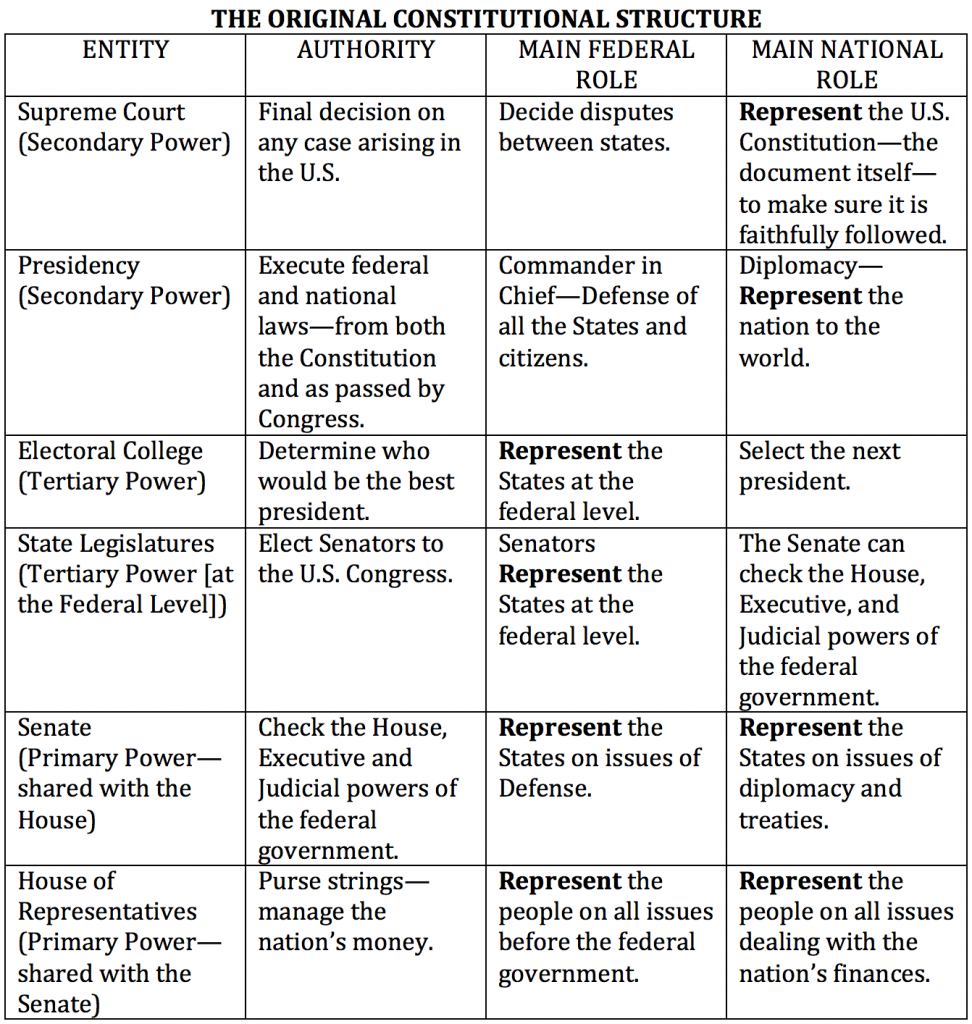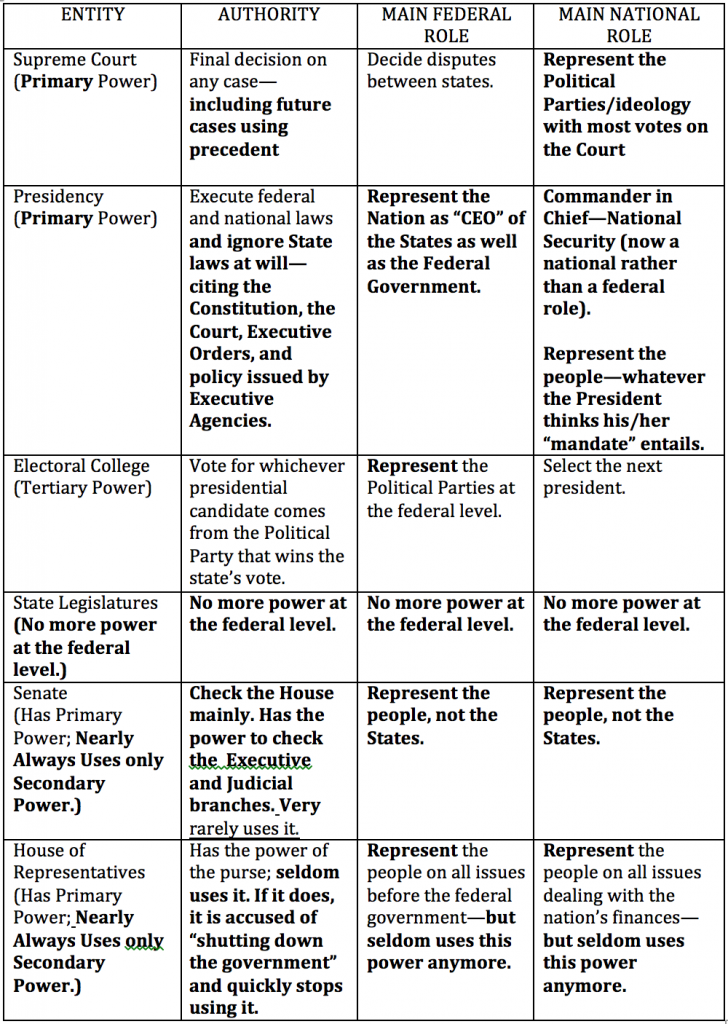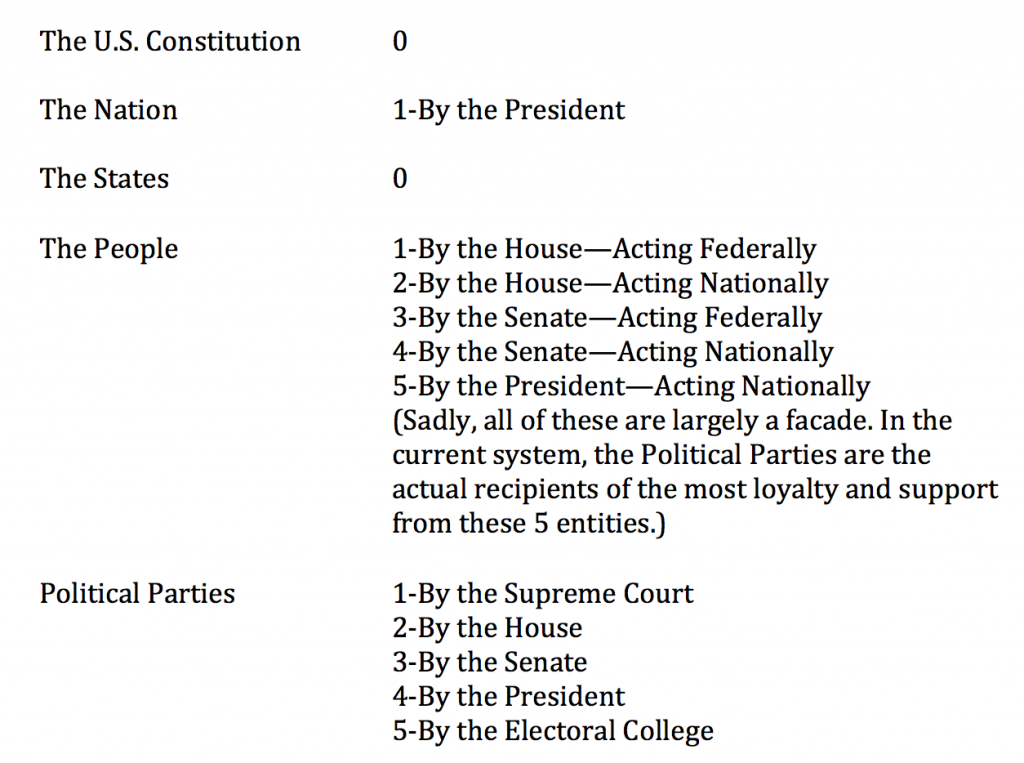Free Enterprise is Better than Socialism or Capitalism
December 14th, 2016 // 8:08 am @ Oliver DeMille
In light of the recent election, a deeper understanding of the real battle facing America in the year and decade ahead is incredibly important!
But surprise: It’s not what most people think.
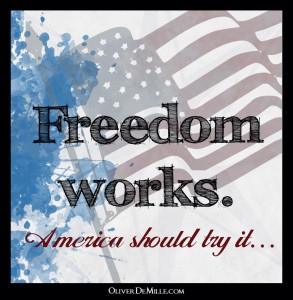 THERE is a hidden battle raging for the future of America. And, by extension, this battle impacts the prospects for freedom around the world. Indeed, if the great freedom system created by the Declaration of Independence and the U.S. Constitution is lost in the United States, it will likely take centuries before real freedom regains its current level of influence in the world.
THERE is a hidden battle raging for the future of America. And, by extension, this battle impacts the prospects for freedom around the world. Indeed, if the great freedom system created by the Declaration of Independence and the U.S. Constitution is lost in the United States, it will likely take centuries before real freedom regains its current level of influence in the world.
This is the great struggle of this generation, but sadly the center-point of this contest is unclear to most people. Only a relative few understand what is actually going on behind the curtain. In fact, this battle for our future hinges on two main questions.
The first question is:
Will Socialism or Free Enterprise be the leading economic system of the 21st Century?
This conflict has been boiling for nearly two centuries, but it is now reaching its climax in the United States. If socialism wins the day, the future of freedom and economic opportunity in the decades to come will be bleak—in North America and around the world.
The decline of the free world will accelerate, China and other socialist-based nations will rise more quickly and gain global power (often by applying free enterprise principles), and the Founding Fathers’ experiment in constitutional self-government will end. Our standard of living will decrease in the decades ahead, the standard of living for our children will be much lower than ours, and their children will likely have a lower standard still.
If, on the other hand, free enterprise wins this battle, the future of American influence will be strengthened, freedom and economic opportunity will spread, and the free world will reboot and rekindle the philosophy of liberty for all humanity.
But the future of this battle is very much in doubt, mainly because the forces of free enterprise don’t actually know who they really are. Free enterprise is losing in both major American political parties, and in the media, academia, Hollywood, and among the political and financial elite. The combined supporters of socialism, though certainly not a unified team, are clear about their goals and strategies. In contrast, those who stand for free enterprise are fractured and unsure, because they are divided by a central confusion about what free enterprise really is. Even when they win elections, the divide remains.
In nearly all writings from the past five decades, when authors speak of socialism and its top competitor, the words used are socialism vs. capitalism. This brings us to the second great issue in the battle for our future:
The second question is:
If Socialism isn’t victorious in dominating the 21st Century, will the winner be Free Enterprise or Capitalism?
These two great questions (socialism vs. free enterprise on the one hand, and capitalism vs. free enterprise on the other) will be the guiding themes of the coming decades. If capitalism wins, the consequences won’t be as negative as socialistic dominance, but they will not be as positive as the results would be under free enterprise.
When a friend told me a while ago that he thinks socialism may be the only answer to our nation’s decline, I was surprised. It’s not what I’m accustomed to hearing from him over the years. But I think I understand what he was saying. Capitalism as we currently apply it too often wreaks havoc with our freedoms, our economy, and our future.
I don’t like the word “socialism” because it has too much baggage (totalitarianism, Marxism/Leninism, a string of failed nations that destroyed their society by attempting to adopt it, etc.) and because there is a better answer. But I do see the desperate need to deal with what modern society calls “capitalism” has done to us. When some people say “socialism”, they mean that capitalism is broken and we need a real solution—soon. And they’re right.
I’m not sure if this is what my friend meant or not, but a lot of people feel this way. It’s a common bond of many who are tired of the “politics as usual” options provided by the Establishment. The desire for something different cuts across the political divide, and its ranks are growing. It has won some surprising elections, but frequently such elections were followed by disappointment as those elected failed to bring true solutions that work.
What does this all mean? What’s behind it all? What is really happening?
Basic Training
Let’s start with the basics. Put simply, free enterprise and today’s system of capitalism aren’t the same thing. Free enterprise is strongly supportive of freedom for all people, while what usually passes for modern capitalism isn’t free enterprise at all, but actually crony capitalism. And crony capitalism deeply undermines freedom.
The problem is straightforward. Both socialism and crony capitalism are steeped in class divisions. Neither treats everyone the same before the law—whether they’re upper class, middle class, or lower class. Socialism claims to do this, but it has never created a society that actually delivered on its promises. In fact, socialist nations have some of the widest divides between the super-rich and poor in the world. And the underclasses in socialist systems are widely neglected, terrorized, and abused.
Crony capitalism is also a disaster. There is a different set of laws for the wealthy than for everyone else, laws that help the rich get richer and the powerful gain more power—while the under classes are routinely treated differently by officers of the government, regardless of what the laws say on paper. To repeat: Under a crony capitalist model, the elite classes have numerous special benefits in the law that allow them to increase their wealth and power at the expense of the rest of us. The law is written to help them, and to keep others from effectively competing with them.
The truth is, crony capitalism is a terrible system. Terrible for freedom, and terrible for prosperity. It lasts because a few elites at the top obtain huge wealth and inordinate power—and they like it that way. Likewise, socialism is terrible model. It almost never gets implemented in a way that even remotely resembles what its proponents idealize and promise. It nearly always becomes an Orwellian caricature of equality, freedom, and “prosperity for all.” Both systems are deeply flawed.
Crony capitalism gives too much power to the money elites, who frequently use it to influence government; socialism gives too much power to government elites, who nearly always use it enrich themselves and give special benefits to their families and colleagues. Both socialism and crony capitalism have proven repeatedly and consistently harmful for the regular people, the masses.
Binary Code
Part of the problem is the binary way in which most moderns see this struggle. Meaning: Many people think that if socialism increases in a nation, capitalism must be decreasing, while if capitalism declines then socialism is on the rise. The truth is that socialism and crony capitalism are natural partners. When the crony capitalists give great power to wealthy elites, the people naturally begin demanding socialistic programs from their government.
Likewise, when socialists increase the amount of money government takes from the wealthy to offer programs for the poor, they make the government bigger and bigger—and the elites who inevitably control such governments from behind the scenes naturally absorb this increased power. The bigger the government—even in the name of social benefits for the citizens—the bigger the power of the aristocratic elite class.
These processes happen simultaneously in most modern nations of the “free world.” Centralized governments get bigger, they control more things in the lives of regular citizens, and a small number of elites enjoy a rapidly increasing share of the money and power.
Best of all, for the elites–when the regular people get upset with an arrangement that is making life harder and worse for most of them, the elites use investment (in businesses, banks, lobbying firms, special interest groups, media, etc.) and donations (to academia, think tanks, hugely powerful private foundations, and political campaigns, etc.) to increase their own influence. It works, year after year, decade after decade. Elites get more powerful and own a bigger share of the wealth.
At the same time, the regular citizen finds it harder and harder to make ends meet, and has less and less influence. Many of the elite-owned and elite-funded media organizations, academic institutions, producers of entertainment, and other top influencers fuel the “socialism vs. capitalism” debate, often using other labels (such as conservative vs. liberal, Republican vs. Democrat, etc.).
This debate makes many of the regular people think that someone is on their side; and it also gives them someone to see as “the enemy.” But both sides, many in both major political parties, and the Establishment wings of both conservatism and liberalism, are funded largely by the same small class of elites.
Again: These elites win most elections, because they fund both sides. They win most policy battles, because they fund the opposing groups. They win at the bank too, because they manage each major political, media, and cultural conflict in a way that brings more of the regular people’s money into elite-owned business services, products, and corporate bank accounts.
The solution to such behind-the-scenes elite domination is a system that treats everyone equally before the law. Everyone. Rich, poor, elite, non-elite, fat, skinny, tall, short, smart, dull. Yes, there should be a separate set of laws for minors—as a protection. But all adults in a truly free system are treated equally by the laws and government officials. This is not the case under crony capitalism. Elites get special benefits.
The Moral Law and Economy
Moreover, truly free government doesn’t have any laws that are immoral. This may seem a strange concept when we are discussing economics, but it is in fact a central truth. As Bastiat explained, the people can only morally delegate to government authority to do something the people have the authority to do. You can’t morally delegate an authority you don’t actually have. Specifically, the force of government is moral only if it is used to defend inalienable rights. Any other use of force or government is immoral.
Together these two foundational principles are the key to free society:
- Laws and government actions can only protect inalienable rights.
- The government must treat everyone equally before such laws.
Socialism doesn’t do this. It recommends using government force to do myriad things beyond protecting inalienable rights. And, historically, socialist societies don’t treat everyone equally before the law—government officials are treated according to a different set of standards. What we call capitalism today has similar problems. It purposely sets out to give special benefits before the law to those with great wealth, with lots of capital.
Both socialism and crony capitalism operate like the Queen of Hearts in Lewis Carroll’s classic book Alice in Wonderland. When the Queen plays croquet with people from her realm, she must win every shot. Not just every game, but each and every swing of the mallet. Everybody lets her win, knowing that if she is bested in even one shot the person who bested her will hear the words: “Off with his head.”
What kind of system is that?
Actually, people who live in socialist nations or crony capitalist societies are used to it. They don’t usually lose their heads, but they know that the whole system is stacked against them and their children. An elite class rules things—regardless of how proponents of socialism or capitalism claim things are supposed to work—and the elites get their way, either by law or by the actions of government officials (despite the so-called law).
In our modern “capitalist” nation, there are a number of laws on the books that treat elites very differently from everyone else, and long-standing practices and policies that treat the underclasses even worse. That’s not socialism, it’s crony capitalism. And it’s a tragedy.
Still, the answer isn’t socialism. Marx’s model is just another flawed and broken system. The answer is true free enterprise—where the government only protects inalienable rights, and actually does protect everyone’s inalienable rights (no matter their social status).
Class Divides
It’s hard for many moderns to grasp just how effective such a model can be. We simply have very little experience with it. But with true freedom, everyone has opportunity. If the upper class wants to dominate, it can’t. The law won’t let it. (Which is precisely what the “pure socialists” are looking for.) If the government wants to dominate beyond it’s proper role, it can’t. (Which is precisely what free enterprisers seek.) When this is the system, as Tocqueville put it in Democracy in America, everyone belongs to the same class—all are treated equally and appropriately before the law.
The only ones who are let down by free enterprise are the crony capitalists or elites, who truly want to dominate. Their motto, as described by an article in The Atlantic on the culture of Wall Street investment bankers, is telling: “It is not enough to succeed. Others must fail.” No win-win is good enough for them. Control is the only acceptable outcome. That’s the driving mantra of elite rule, both in applied socialism and crony capitalism.
If the word “socialism” meant stopping such elite domination and spreading a system of true freedom, I’d be all for it. But the thing is, it already has a name: Free Enterprise. And it works, as long as we don’t let crony capitalism, elitism, or socialism creep in.
Sadly, few people understand the difference between free enterprise and crony capitalism. Yet the differences are largely driving our current decline. It is time for anyone who truly cares about freedom in our modern world to clearly understand this battle, its roots, and the future it is creating for us even as we speak. Moreover, it is time to remedy this situation before it entirely restructures our society. Freedom hangs in the balance.
This is about freedom, success and progress, and how all three are served better by free enterprise than either socialism or crony capitalism. It is about who we really are as people, Americans and members of the free world, and why the differences between these two ways of life—capitalism and free enterprise—are at the root of our future.
Semantic Power
For far too long free enterprise has been held back and watered down by the tenets of capitalism. In fact, perhaps the most significant reason socialism has been able to capture the support of so many people in modern times is a direct result of confusing free enterprise with capitalism.
When the differences between capitalism and free enterprise are clearly understood, and the flaws of capitalism are removed from our opinions of free enterprise, socialism will have little or no chance of winning this great battle for the hearts and minds of the people.
Before World War II many Americans combined their view of Stalin’s communism and Hitler’s Nazism into one group considered an axis of evil, and during the Cold War many people mistakenly saw communist China, Russia, North Korea, Vietnam, Cuba and others as one cohesive entity. This caused numerous flawed policies—and cost far too much in blood, sacrifice and treasure—because national leaders took action based on faulty assumptions.
Likewise, today many people erroneously lump capitalism, democracy, and free enterprise into one indistinguishable whole. But free enterprise is a system of true freedom, and while democracy is clearly better than totalitarianism and capitalism is in some ways superior to socialism, free enterprise is significantly better than all these alternatives.
Free enterprise deserves to be understood on its own merits, without the baggage of capitalism weighing it down. Nearly all of the legitimate criticisms levied against free enterprise are actually attacks on the flaws of crony capitalism. As a result, free enterprise has seldom received a full consideration on its own merits. Indeed, if the battle for the 21st Century comes down to capitalism vs. socialism, socialism may very likely carry the day.
True free enterprise, in contrast, is the best economic and political system known to mankind, and if it is understood as it truly is, free from the stains and blemishes of crony capitalism, few will see socialism as the right choice for humanity. Ideas have consequences, as the great Richard Weaver assured us, because all human actions aim at some goal, some ideal. What we hold up as our standard impacts our most important choices as a nation. As long as our ultimate objective is capitalism, socialism will always have its coffers full and its meetings packed. Capitalism is flawed; so is socialism.
In contrast, free enterprise is a very different model indeed. It is time to truly understand free enterprise, to decide as a generation if free enterprise or it’s de facto modern opponent, capitalism, deserves our support against socialism, and which model we want to pass on to our children and grandchildren.
Again, if the battle is between socialism and crony capitalism, as we have seen for generations, the victor is still unclear. But if free enterprise has a real opportunity in the full light of day, if every citizen in the free world has the chance to understand it for what it really is and choose to support or reject it, the days of socialism are numbered.
And free enterprise is not some idealistic dream. It alone is the proven system of widespread freedom and economic opportunity in mankind’s history. Free enterprise is the basis of most real and lasting freedom everywhere, whether people have recognized it as such or not. Even where capitalism has gotten credit for freedom and prosperity, the truth is that free enterprise was the actual source of success.
As free enterprise goes, so goes freedom—in every nation of the globe, and through every epoch of human history. It has seldom received its due, but it has been at work wherever freedom existed, spreading opportunity from behind the scenes.
It is now time to give free enterprise a bigger chance, to at the very least see what it stands for on its own, how it differs from capitalism, and what it promises for those who implement it in their society. This is a book about freedom, and the reality that the actual principles and processes underpinning all human freedom are found in free enterprise.
One thing the new leadership in Washington, and the people, need to clearly remember is this:
To the exact extent that free enterprise (not crony capitalism) flourishes in the 21st Century, we will see real freedom expanding its blessings in America and in the world.
(Note to Reader: This post is part of an upcoming new book by Oliver DeMille, entitled: Free Enterprise versus Capitalism: Battle for the Future of Freedom. Look for Part Two of this report, which will provide more details on this great hidden battle of our time, in another post coming soon.)
Category : Aristocracy &Blog &Business &Citizenship &Community &Constitution &Culture &Current Events &Economics &Education &Entrepreneurship &Generations &Government &History &Independents &Leadership &Liberty &Mini-Factories &Mission &Politics &Producers &Statesmanship
The Hidden Meaning of the 2016 Election
November 15th, 2016 // 7:43 am @ Oliver DeMille
The election is over. Now comes the truly important part.
And it depends on you, more than you realize.
1. The Two Nations in the U.S.
 Forget everything you thought politics were about in America. The Bernie Sanders and Donald Trump revolution of 2015-2016 taught us something very important about our country. We sort of knew it already, but now the evidence is clear.
Forget everything you thought politics were about in America. The Bernie Sanders and Donald Trump revolution of 2015-2016 taught us something very important about our country. We sort of knew it already, but now the evidence is clear.
We are two nations. Not one nation, but two. Distinct. With different goals and dreams. With a different view of what is good and bad. And with almost opposite beliefs about what we want in the next four years, and beyond.
Regardless of how the media has portrayed things during the long months of the election, this great national division isn’t Red versus Blue states, Republicans versus Democrats, or whites versus minorities. It isn’t the same old battle between conservatives and liberals. Something new is afoot.
We are a nation divided. A nation split–fractured, in fact. In 2016 this division came to a head, but the election didn’t put an end to it. Not even close. We are a nation split between the political class, the elites, on one side, and the great mass of citizens on the other. But the differences between these two classes are significant. Specifically:
- The masses want to put the election behind them and get back to their daily lives. They hope the agents of change they elected will make things better, so they can focus on their families, jobs, and hobbies.
- The political class from both parties, Democrat and Republican, feels slapped in the face by the 2016 election. In every way they were put in their place by the voters. They’re not used to this. In fact, they’re used to sneering at the regular people in the nation, the people who live in rural towns and flyover states (the states “important” people fly over when they travel from one coast to the other). They’re used to laughing at the idea that the masses run this country. So now, with the fresh sting of the election driving them, they’re going to go to work every day to get their power back.
These are the Establishment of both parties, the elites in finance, academia, media, Hollywood, and lobbying. Many of them live in the Boston/New York/Washington D.C. corridor, and a lot of them live in the largest 100 U.S. cities that are home to the elites in each of the 50 states.
These Establishment members, the political class, care little for the struggles and challenges faced by the regular people. This group strategizes, debates, plans, and implements its policies, while routinely telling the masses to leave politics to the experts. “We’re the adults,” the elite class smugly tells the rest of us on any major issue of politics and policy. “Leave governance to us. Only we really understand what you need.”
The masses are, naturally, upset by this approach. But the problem is much deeper than the elites admit. The political class is now angry. The elites lost the battle in the recent election. But they are committed to win the long-term war.
Two Americas indeed.
2. The Political Class versus The People
The political class includes elected officials, federal government employees and bureaucrats, the media, academia, Wall Street, Hollywood, celebrity athletes, and anyone who lives in the elite, big-money bubble that insulates them from the daily struggles of the working class in this sputtering economy. This group benefits from the way Washington has done things for the past thirty years. They are wealthy and influential in the current system. They don’t want change. They are shocked by what happened on election night 2016.
They want higher taxes and even more regulation, a bigger Washington, bigger government, bigger programs, more bureaucracy.
This isn’t what the masses want.
But as mentioned, the masses see the election as over. They want to go back to work, hoping their newly elected leaders will fix things. In contrast, the political elite class is now ready to go to work winning back their power—to do whatever they can to block the revolution that put Trump into office, to do whatever they can to keep things the same in Washington and around the nation.
And the political class does this full time. For most of them, it is their job, their career, their work—and they’re at it 60-80 hours a week, day after day, month after month.
3. A New and Different Culture War
As part of this trend, more of the regular people will find themselves feeling less tolerance for celebrities, actors, singers, sports figures, news pundits, and professors trying to use their fame or authority to influence politics. The whole elite class is now considered suspect at a deeper level than ever before. “We’ll attend their movies and watch them play basketball,” the masses now say, “but we don’t care what they say about politics. They’re part of the Establishment. What could they possibly know about what’s best for me and my family?”
The elite class hardly knows what happened on election night. They are shocked. They loved their life of influence and prosperity. They struggle to believe that others don’t love what America has become as well. They don’t quite realize that much of America doesn’t like them anymore—that, in fact, lots of Americans see them as part of the problem. This is bewildering to them. They thought they were part of the “in crowd.” Now they discover they are seen as insiders by most Americans, but that this isn’t a compliment. It’s a term of derision.
On election night, one pundit on a major news channel told how he went to the gym during a break in election coverage and heard two men talking about politics. One of the men was elated that Trump was winning, and the second man asked him how he felt about a certain Trump policy. The first man quickly replied, “Who cares? At least Trump isn’t one of them.”
The reporter immediately grasped that the man wasn’t referring to Democrats as “them”. He was talking about politicians—from both parties. “One of them” meant anyone in the political class, be it Dole or Gore, McCain or Obama, Hillary or Jeb Bush, Romney, Rubio, Sanders, or Cruz. All of “them.” Then, later, it dawned on the reporter that he was one of the “them” too.
Imagine his surprise. Was it followed by feelings of defensiveness? Was he offended? Did he want to distance himself from the “them” crowd? It may have been the first time in his adult life that he felt like he was suddenly out of the popular clique and one the outcasts. “Them! Me? Wait…”
But how did a billionaire from New York City convince the nation that he wasn’t one of “them”? The answer is amazing. He did what pretty much nobody in the elite class ever does—in Boston, New York, Washington, L.A., or the smaller state-capital elite cliques around the nation. He did something very simple: he talked off-the-cuff, like the regular people. He made regrettable gaffes and misspoke from time to time – more like a high school football coach or a construction crew foreman than a polished banker, lawyer, or doctor. He called names, pointed fingers, talked back in bombastic tones and used colorful language. Nearly every time he went on TV or gave a speech he proved that he wasn’t one of “them.”
In fact, this very behavior made him one of the most despised presidential candidates ever—in the eyes of the political class. It made the college-educated embarrassed to support him, and it made Millennials loathe him as a virtually monolithic block. To the regular people, however, it did the opposite. It gave them hope. He acted like one of working class. Their response? “Who cares. At least he’s not one of them.” And they elected him.
This is a cultural war that most elites don’t understand. They are widely socialized in college, corporations, meetings, boardrooms and other air-conditioned settings where oxford collars and blue blazers are universal, and the elite code of manners is ubiquitous. Anyone who doesn’t meet their code of behavior is quickly ostracized, not out of malice but usually just for comfort. This becomes part of their culture, their ethos.
When elites (gently socialized in this way) encounter people dressed like workmen, speaking with a regional accent (any region), they too often make certain ingrained assumptions: “slow, hick, uneducated, inferior” or something similar. It’s not meant to be a bias—the political class works very hard to never show any bias, and in fact to avoid bias at all costs (or, at least, the politically incorrect biases). But it is a bias nonetheless.
It was, in fact, this very bias that made almost all newsrooms on every national network laugh at the preposterous thought of Donald Trump actually trying to run for president. His ball cap worn with a suit, his bluster, his pugilistic stance in every conversation. All of this communicated “unworthy, inferior, lower class” to the political elites. “Buffoon” they told each other.
What they missed, what they can still hardly even fathom, is that at the very same time millions of working-class Americans were taking notice and thinking that Trump might just be for real. Those ball caps with suits looked an awful lot like prosperity to them. The brash attitude and demeanor felt authentic and unrehearsed, and made them feel like “he’s one of us.” When he attacked the media, or lashed out at “the potential Trojan Horse” of Syrian refugees, or said mean things about opponents, the elites and college-educated saw crassness while much of the working masses saw unpracticed transparency. The masses may have been wrong about this on numerous occasions, but the elites didn’t even realize what was happening. They were oblivious, smugly sure that they were still the undisputed rulers of the nation.
In short, elites and the masses read the entire election very differently right from the beginning. Elites saw a national joke, and called him “Orange” and “clown”; the masses watched the same interviews and speeches and saw one of their own who had achieved success.
As an article in The Atlantic put it, elites didn’t take Donald Trump seriously, but they did take him literally; working people took him seriously but not literally. They didn’t see his extreme remarks as racist or misogynist, they just saw him as a villain on a reality TV show—the villain says extreme things, and this makes him/her the most popular character on the show (meaning: the villain seldom gets sent home; it would hurt ratings too much). They’d seen the same plot on Survivor, American Idol, The Bachelor, and yes, The Apprentice.
4-The Real Solution for America
But, to repeat, the masses now have a problem. The election is complete, and for the masses this means turning politics over to their newly-elected leaders and getting back to the things they really care about in life. What the working-class people of America don’t quite realize is that for the elite class the end of the election means putting their full-time work into making sure the election doesn’t change things very much at all. They want things to stay the same. They like the world where they are the elites, with special perks and higher pay than the rest of us.
They prefer ruling from the Capital while the masses work for them in the Little Towns and Villages (see the Hunger Games series). They don’t want this latest election to be a revolution, a movement, or bring about any serious change. And they don’t want the anti-Trump protests to bring about any real change either. They want exactly the opposite. And they’ll spend their full time days and evenings working toward this goal.
In other words, if you dislike Trump, don’t expect the protests (including those that will probably sweep the nation again at inauguration time) to bring any real change. The elites don’t want change. And if you like Trump and want him to fulfill his campaign promises and really change things, expect the elites to block as much change as possible. Repeal Obamacare? Trump has already started talking about keeping parts of it. Expect the elites to do much to tone down and water down Trump promises. Will a lot change? Not if the elite class can help it.
So what can the regular people do? First, we must admit that the right kind of leaders can do exactly two things to really help us: (1) get Washington appropriately out of the economy and out of peoples’ business, and (2) keep our nation safe. This bears repeating: the government is needed to keep our nation safe, and to change the regulations so this once again becomes a land of real economic opportunity. This is exactly what the recently-elected leaders have promised.
But that’s only the starting point. The rest of the work can’t be done by any elected official, any Senator or President, any Governor or Judge. It can only be done by the people themselves.
This is the hidden truth behind the election, and if we fail to grasp this one great principle, the elites will win their way because not much will actually change in Washington or around the nation. If the new leaders make our nation safer and free our economy from the crushing mountain of government red tape that has hampered small business success for the past thirty years, they will accomplish everything government can and should do well.
The rest is up to us. The American Dream has always been a two-fold reality:
- The government protects our national security and maintains a nation of economic, religious, and other freedoms. This is the “free” part of free enterprise.
- The people widely engage entrepreneurial ventures and voluntarily build millions of small businesses around the nation. This is the “enterprise” part of free enterprise. If a lot of people don’t take the initiative to fix their nation, one business at a time, the politicians will never make our nation great.
 Freedom only works if the people—not the government—figure out what needs fixing and fix it, and what needs to be built and build it. If government is in charge of such things (beyond protecting us from attack and overregulation), then freedom is always diminished. To cite Hemingway, freedom is lost a little bit at a time, and then suddenly all at once.
Freedom only works if the people—not the government—figure out what needs fixing and fix it, and what needs to be built and build it. If government is in charge of such things (beyond protecting us from attack and overregulation), then freedom is always diminished. To cite Hemingway, freedom is lost a little bit at a time, and then suddenly all at once.
We’ve been experiencing the loss of our freedoms “a little bit at a time” for decades. Now we need to change things before the “all at once” kicks in.
Again, the solution won’t come from politicians. That’s what happens in monarchy or aristocracy. For real, positive change to happen the right way, the free way, it has to come from the people. And this means entrepreneurship: building businesses. The term for this in our history is “The American Dream.”
Only a refocus on entrepreneurialism across the nation will actually make America great again. Nothing else will do it. Nothing else will even come close.
The 2016 election could turn out to be a positive step in this process, because this time the masses (hopefully) put leaders into power who actually see the importance of free enterprise. But, to repeat: The elite class wants to stop this approach at all costs—they really do want a few elites (them) to run the show. This keeps them in power, in wealth.
So, whatever you feel about the elections, one thing is certain: The rest of us have a vitally important job ahead. If we want to remain free, and to actually benefit from the possible changes that hopefully come from the election, we’ve got to figure out how to get the regular people in America to stop waiting for a fix from Washington, and also stop waiting for jobs and better employment to fix things for them, and instead get to work building the kind of nation we really want—in families, communities, and mostly in small entrepreneurial businesses.
We can do it. But “we the people” must do it, or it won’t get done. Whatever deregulations and increased encouragement to small business Washington can provide in the months and years ahead will be helpful, but the future doesn’t depend on elections. Elections can help, but real success depends on whether we as a people reboot the American Dream by engaging an Age of Entrepreneurial Small Businesses—and the impact such free enterprise culture always has on families, morality, communities, jobs, and prosperity for all.
This has always been the key to American greatness.
It still is, whether we realize it yet or not.
As goes small business entrepreneurialism, so goes America. And this doesn’t mean someone else needs to be entrepreneurial. This is about you, me, and any person who actually cares about our American future.
Category : Aristocracy &Business &Citizenship &Community &Culture &Current Events &Economics &Education &Entrepreneurship &Generations &Government &History &Independents &Leadership &Liberty &Politics &Producers &Prosperity &Statesmanship
“Attack Business, as Usual”
November 2nd, 2016 // 6:58 am @ Oliver DeMille
Washington’s Current Slump
(And the Solution)
Growing or Shrinking?
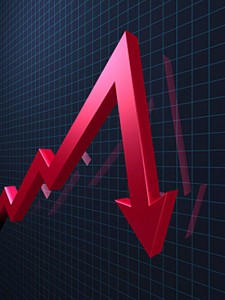 To pay for the national debt, including the unfunded mandates and entitlements ahead, “Uncle Sam needs more than $429,108.73 per person.”[i] To figure out how this directly impacts you, just write down how much you make a year—and multiply it by the number of years you plan to keep working. (Not a perfectly precise approach, but it will get us in the ballpark.) Then multiply $429,108 by the number of people in your family. Find the difference between the two numbers, and that’s how taxes will impact you in the years ahead.
To pay for the national debt, including the unfunded mandates and entitlements ahead, “Uncle Sam needs more than $429,108.73 per person.”[i] To figure out how this directly impacts you, just write down how much you make a year—and multiply it by the number of years you plan to keep working. (Not a perfectly precise approach, but it will get us in the ballpark.) Then multiply $429,108 by the number of people in your family. Find the difference between the two numbers, and that’s how taxes will impact you in the years ahead.
For many Americans, the taxes in this reality are higher than the total amount of money they’ll make. Which is why politicians want to take most of it from the rich. But when they do, the wealthy find ways to move their businesses and savings abroad or into other financial vehicles—hurting jobs, investment, and making the economic struggles of average Americans even more difficult.
However we slice this, it’s a massive problem. It is already hurting almost all Americans (as seen in the Great Recession beginning in 2008, and growing ever since). Government stimulus, printing of inflationary money, and low gas prices have dampened how deeply we feel this problem right now—but these aren’t going to last forever. At some point the bubble will burst, and the economy is in for a tough time. All of us will be directly impacted.
But Washington hardly seems to notice. During elections most candidates promise real change, but it seldom materializes, at least not in positive ways. In fact, since 2008 we’ve seen a stubbornly sluggish economy. Washington puts out positive statistics each month, but most people aren’t feeling any kind of economic boom. And 90 days later Washington revises its past statistics—they are routinely much worse than originally announced.
Yet for some reason, the initial positive announcements make big headlines, while the revisions are usually buried in fine print. It’s almost as if the mainstream media is trying very hard to make the current Administration look as good as possible, and sway the election in their favor as well.
Safe and Secure
It may also be that Washington actually doesn’t notice how hard this economy is for most Americans. As “Phillip Longman recently noted in the Washington Monthly, the per capita income of Washington, D.C. in 1980 was 29 percent above the average for Americans as a whole; in 2013 that figure was 68 percent.”[ii] That’s 68 percent more! To put this in concrete terms, a person making $15 per hour would be compared to a person making $25 per hour. Or compare a person making $4000 per month to the 68% increase: $6720. Is it any wonder that Washington doesn’t feel the pinch quite so much as Joe American?
Compared to average Americans, Washington is doing a lot better. So why would they worry? For many in the nation’s capital, it must feel like time to fiddle, not worry that Rome is burning. Imagine how you’d be doing with 68 percent more money each month. (68% more of any amount seems fantastic. I’d be fiddling, too.)
Along with the struggling economy—largely a result of Washington’s increasing mountain of red tape that is choking American businesses—the U.S. is continuing to spend a lot of money on national security programs that aren’t working. “Since 9/11,” an investigation in The Atlantic reported, “the United States has spent $1 trillion to protect the homeland. The new security state is vast—and growing.” But “are we any safer?”[iii]
The experts answer that yes, we are a bit safer in some ways.[iv] But not even close to $1 trillion worth—and besides, we are less safe in a number of other ways.[v] Less safe, in fact, than we were when Bush won his second term or Obama was elected the first and second times. Specifically, Al-Qaeda and the Taliban are still around, Iraq is a mess, ISIS is growing, our privacy is dwindling (along with our spending power), and the threats from places like Russia, China, North Korea and Iran have actually increased, along with the growing dangers of cyber and other non-traditional attacks (chemical, biological, lone wolf, dirty bomb, etc.).
It seems the more we spend, the more vulnerable we are. Our lack of a coherent and widely-supported national grand strategy has made things significantly worse over the past decade.
As if this weren’t enough, we are also now facing a growing threat of serious economic conflict with China, which is buying up contracts and supply chains for natural resources around the world. Unlike U.S. firms that work largely on their own capital or that borrowed from banks or investors, all governed by boards and shareholders, Chinese firms are managed by a central government approach—even more controlling than British mercantilism in the 18th and 19th centuries.
Circling Closer
We’re right not to follow the Chinese model, since central controls undermine freedom. But the differences between our system and theirs skew the way economic statistics are reported, meaning that few Americans realize how bad our economic outlook really is. For example, in the latest Fortune 100 rankings of the biggest businesses in the world, the U.S. has 38 companies on the list, all of which are private.[vi] In contrast, China has 18 companies on the list; 16 of these are owned by the government.[vii] Combine the totals of these 16 businesses, and the Chinese government owns by far the biggest business in the world.[viii] Nobody else is even close.
Here’s another way to look at this: of the biggest 5 businesses in the world, one (Walmart) is a U.S. company and the next three are Chinese—all owned by the government in Beijing.[ix] The combined revenues of these three Chinese businesses are double that of Walmart, and over three times the revenue of the fifth biggest company in the world, Royal Dutch Shell oil.[x]
In comparison, Europe is home to 29 of the biggest 100 businesses in the world, 28 of which are private, while 1 is owned by the government of France.[xi] Furthermore, Japan, South Korea, Taiwan and Singapore are home to a total of 11 of the 100, and all are privately owned.[xii] Together Russia, Brazil and Mexico are home to 4 of the world’s largest 100 businesses; 1 (in Russia) is private and the other 3 are government owned (one from each of these nations on the last list).[xiii]
In short, of the world’s biggest 100 businesses and largest producers of global wealth and prosperity, 20 are owned by a government, 16 of them by one single government: China. Yet Washington keeps hobbling American entrepreneurs and investors with increasing regulations that stifle our ability to compete. Yes, China’s economy has slowed a bit this year, but their growth is still way ahead of the United States—and their slowdown will likely mean they’re less willing to keep carrying our debt load (very bad news for our economy).
It’s time for Washington to take note of our gloomy economic outlook, addiction to government overspending and growing debt, and a very expensive and bureaucratic national security apparatus that is more hat than cattle—as the saying goes in Texas. For this vitally important change to happen, we’ve got to stop expecting so much from the White House and demand a lot more from Congress. Until this occurs, we will keep declining in an “attack business, as usual” approach to the economy.
Forward or Back
All this that I have described here is a recipe for major American decline. And it is our current path.
With all that said, I’m an optimist. I believe the best years for America and the world are still ahead. But how soon we initiate those “better years” largely depends on the Congressional elections in 2016. We need a Congress that will finally stand up for the American people (against the executive and judicial branches) and get serious about creating a truly free, booming economy.
We haven’t had such a Congress for decades—and we’ve been in decline ever since that trend started. Such forces of decline are now snowballing, meaning that the actions of the next Congress will largely determine America’s trajectory for the 21st century.
[i] Harry S. Dent, Boom & Bust, July 2016
[ii] Cited in The Atlantic, September 2016, p. 102
[iii] Steven Brill, “Are We Any Safer?” The Atlantic, September 2016
[iv] Ibid.
[v] See ibid.
[vi] See Fortune, August 1, 2016, 110-119
[vii] Ibid.
[viii] Ibid.
[ix] Ibid.
[x] Ibid.
[xi] Ibid.
[xii] Ibid.
[xiii] Ibid.
Category : Aristocracy &Blog &Business &Citizenship &Community &Culture &Current Events &Economics &Entrepreneurship &Featured &Foreign Affairs &Generations &Government &History &Independents &Leadership &Liberty &Mission &Politics &Producers &Prosperity &Statesmanship &Technology
THE REAL BATTLE OF OUR TIMES
October 26th, 2016 // 6:40 am @ Oliver DeMille
And the Real Need in the 2016 Election
Vital Point #1
 We need a Congress that will finally stand up for the American people and get serious about adopting policies that bring a more genuinely free—and therefore booming—economy.
We need a Congress that will finally stand up for the American people and get serious about adopting policies that bring a more genuinely free—and therefore booming—economy.
While the mainstream media focuses on the presidential election, the real battle will be for Congress. Even some members of Congress argue that winning the White House for their party will make all the difference—but that’s only true if the next Congress remains weakly afraid to take on the Oval Office and use the power of the purse to put our economy back on track. The American framers set up the Constitution with exactly this in mind: a strong Congress that keeps the president in check.
Many people consider this election one of the most important of our generation. And it is, but not because of the presidential contest. Put simply:
Regardless of who wins the White House this year, the real issue will be whether we have a weak Congress who lets the executive branch keep increasing spending and decreasing freedoms—or a strong Congress that understands what the Framers intended and uses their Constitutional powers to get our economy back to true free enterprise.
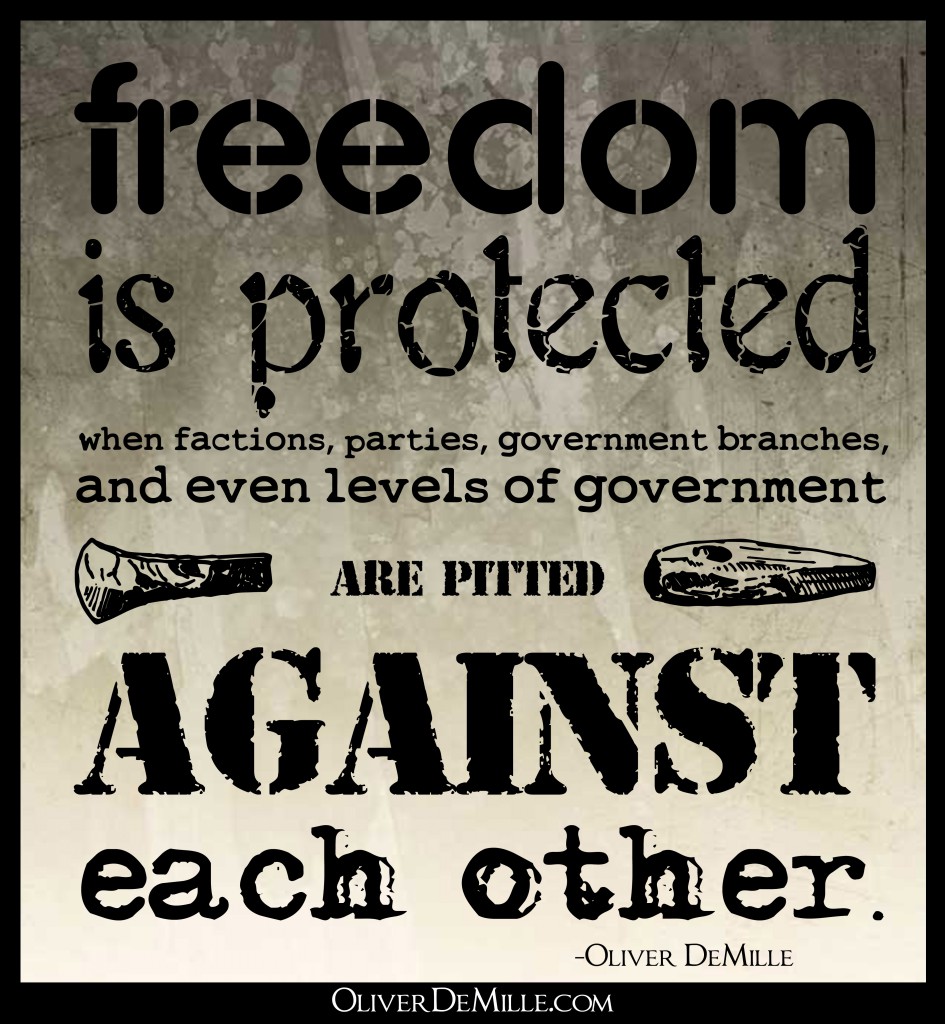 No matter who becomes president, this one issue will determine our future.
No matter who becomes president, this one issue will determine our future.
The voters need to understand this, and keep their eye on the ball. This is extremely important.
The two things the next president will do that are near this level of importance are 1) to appoint new members of the Supreme Court, and, 2) heaven forbid, to deal with a major national security problem. So, obviously, the executive election matters as well. But without the right Congress, we’re in for major decline in the coming years—no matter who occupies the Oval Office.
Vital Point #2
The real battle isn’t what most people think. It is being waged in both subtle and open ways, but academia and media seldom mention it directly. Yet this battle will determine our future.
Many think the great battle of our times is one of the following:
- Socialism vs. Capitalism
- International Interventionism vs. America First
- China vs. the United States
- Conservatives vs. Liberals
- Globalism vs. Nationalism
None of these is even close to our biggest challenge. Today’s great war for our future is much larger, significantly deeper, and more impactful than any of these. The great battle of our times is:
Elitism vs. Enterprise
More specifically: Top-Down Elitism vs. Grassroots Free Enterprise. Note that elitism thrives when a few super-rich at the top dominate finance, politics, media, and culture in our society. Enterprise flourishes where the regular people—the masses—have great economic opportunity and as a group determine our economy, government, and social customs/values.
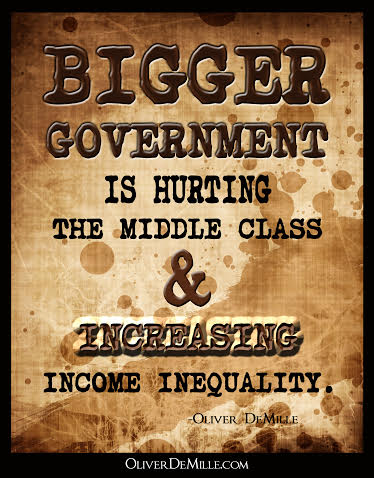 Elitism rules from a few top banks, governmental institutions, exclusive universities, elite media firms, and dominant corporations. Enterprise drives society from the basis of strong families, communities, churches, voluntary service organizations, and small businesses.
Elitism rules from a few top banks, governmental institutions, exclusive universities, elite media firms, and dominant corporations. Enterprise drives society from the basis of strong families, communities, churches, voluntary service organizations, and small businesses.
But there’s more: Elitism today dominates the top organizations promoting both socialism and capitalism, and it makes up the Establishment of both major political parties. Elitist banks and corporate leaders control the management of those seeking both globalism and national strength. The leading media and academic hawks and doves are nearly all elitists. Elites win by controlling both sides of things—wherever they can.
Elitist investment rules the corporate world, top media providers, and the most powerful special interest groups. Elitist philanthropy controls higher education, the most influential think tanks, and many of the most powerful foundations (most of which operate quietly behind the scenes).
In America, the word Enterprise is frequently coupled with its partner, freedom, in the phrase “Free Enterprise”; but “Free Elitism” is an oxymoron. If it’s truly free, it isn’t elitist.
Indeed, it is elitist influence in Congress and the media that circumvents the Constitution by convincing the House not to utilize its power of the purse to check the White House, the Court, or the Senate. So, yes, the real need in this election is to elect the right Congress—men and women who will use the Constitution as intended.
Action Plan
But the real war runs much deeper: Getting regular people to choose enterprise over elitism, in their votes for Congress and in their everyday education, career and cultural choices as well. This war—to awaken the people to the reality of top-down ruling elitism vs. grassroots free enterprise, and get them to take a stand for free enterprise—is the great battle of our times.
This starts with the most basic principles of learning and livelihood. On an educational level: If you’re not regularly reading the great books, great classics, and great ideas, you’re part of the problem. Concerning career: If you’re not engaging or strongly supporting entrepreneurial ventures, or (at the very barest minimum), encouraging entrepreneurialism among the youth, you’re part of the problem.
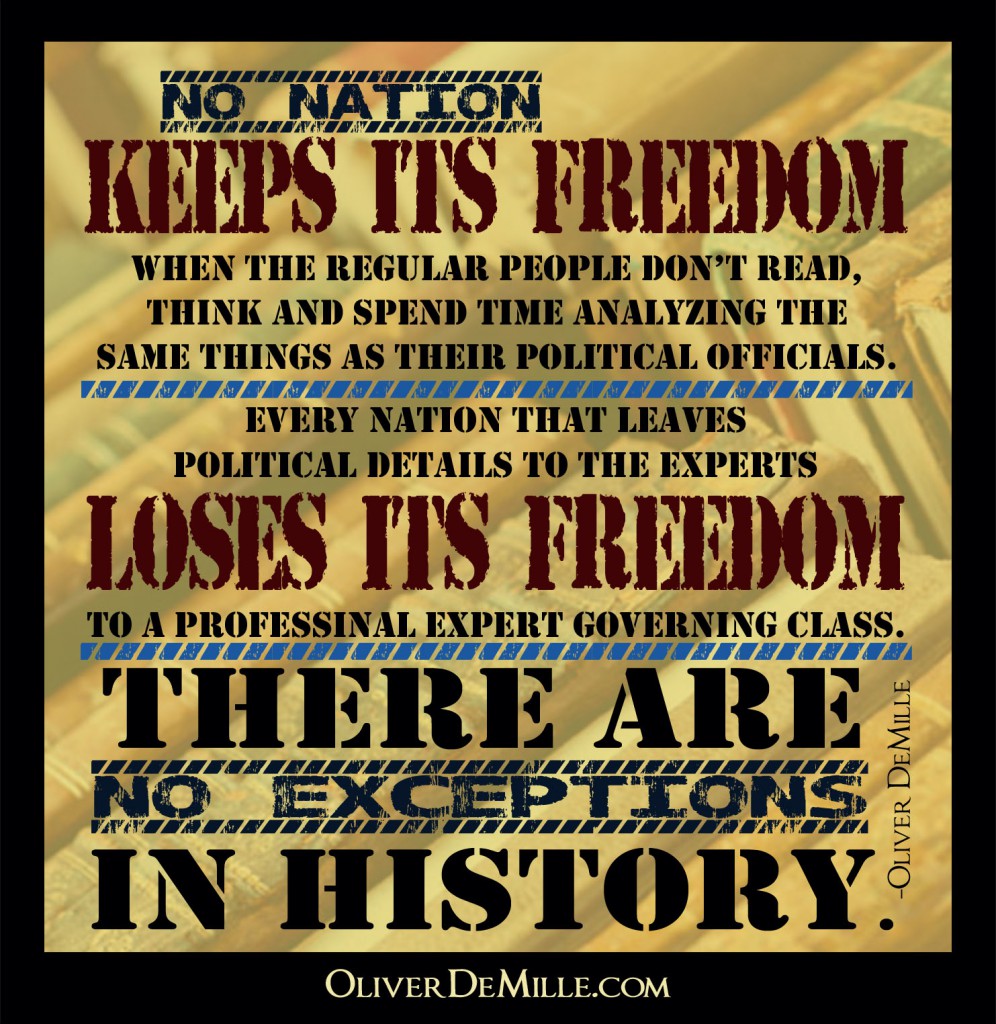 If you’re swayed by the education/career conveyor belt, or pushing your children and grandchildren into it, you’re part of the problem. If you’re swayed by the elitist Establishment that dominates both political parties, or their media partners, you’re part of the problem. And if you’re caught in the socialist vs. capitalist or national versus globalist debates (all of which are ultimately led by elitists), you’re part of the problem.
If you’re swayed by the education/career conveyor belt, or pushing your children and grandchildren into it, you’re part of the problem. If you’re swayed by the elitist Establishment that dominates both political parties, or their media partners, you’re part of the problem. And if you’re caught in the socialist vs. capitalist or national versus globalist debates (all of which are ultimately led by elitists), you’re part of the problem.
Elitism wins as long as the masses play the elitist’s game. Indeed, many people are actually supporting elitism, either by giving up on their dreams and simply settling for whatever job pays the bills, or by trying to climb the elite ladder and become part of the elite themselves (and/or guiding their children toward the same).
The solution is enterprise. What is your mini-factory, your enterprising project (or projects) that fuels your passion and have the potential to greatly improve the world? If you don’t have such a mini-factory—or find yourself seldom working on it—you aren’t fighting the great battle of our time. And our side is losing.
This battle is real. Current. Dramatic.
It is happening right now.
We need to win it for freedom, for our children and grandchildren, for the future of families and morality and goodness. Which means this: We need your involvement.
Right now.
(To learn more about creating your own personal mini-factory, and how this will win the battle of our times, read The Coming Aristocracy by Oliver DeMille. Available at the Leadership Education Store)
Category : Aristocracy &Blog &Business &Citizenship &Community &Constitution &Culture &Current Events &Economics &Education &Entrepreneurship &Family &Featured &Foreign Affairs &Generations &Government &History &Leadership &Liberty &Mini-Factories &Mission &Politics &Producers &Statesmanship
Why Populism? by Oliver DeMille
July 6th, 2016 // 7:46 am @ Oliver DeMille
Pendulum Swinging
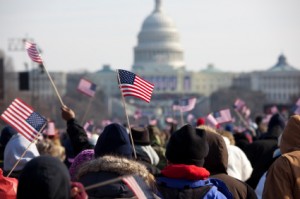 We’ve heard a lot about populism during the election, and we’re going to hear a lot more. Why? Because the elite media is in serious shock.
We’ve heard a lot about populism during the election, and we’re going to hear a lot more. Why? Because the elite media is in serious shock.
They expected Hillary Clinton’s success, but the rise of both Trump and Sanders has astonished them.
Result: they’re writing and talking a great deal about “populism,” and the “dangers” it brings to our nation.
By the way, these tend to be the same journalists and media professionals who consistently tout the United States as a “democracy,” not a “republic” or “democratic republic.”
They promote “democracy, democracy, democracy” as the greatest governmental system ever, and then act shocked and worried when populism shows up to an election.
The irony is that populism is simply what happens when more voters than usual get actively involved in the process. In other words, America engages in populism during the years it acts the most democratic. Why are the elites concerned?
Answer: They like the kind of “democracy” where the masses are consistently swayed by the media—where expert elites tell the populace what to believe, and the electorate votes accordingly. This is what most members of the elite class actually mean when they use the word democracy.
Personally, I like Francis Fukuyama’s definition. He said:
“‘Populism’ is the label that political elites attach to policies supported by regular citizens that they don’t like.”
Funny how that sentence is written. Does is mean the political elites don’t like the policies? Or that they don’t like the regular citizens? I think it means the latter. But maybe not. Perhaps it means both the policies and the regular citizens.
Fukuyama notes that populist voters sometimes choose poorly, but “elites don’t always choose correctly either.” Very true. And in our current historical context, the worst-case scenario would be another elitist choice for president. Elites have increased in power far too much in the past three decades, and it’s time for the pendulum to swing back to the power of the people.
I. 3 Positive Developments
Here’s the “good news,” so to speak, about the current rise of populism:
#1
As Fukuyama also pointed out, this wave of populism is weakening both of the major political parties. The Democrats are losing large segments of their working class base and moving even more to the party of “a bunch of special interest groups,” while Republicans are almost violently split between the “big business crowd” and working class voters. Indeed, working class populists from both parties are now behaving like a formidable force.
#2
On a structural note, the framers of the U.S. Constitution didn’t want the president to be elected by mass vote. This is why they established the Electoral College—which originally worked with each state sending its representatives, rather than the people voting in a mass presidential election at all.
Fortunately, the people usually sense it when things are out of kilter. The framers put the people in charge of electing the House of Representatives in large part because the House controlled the nation’s money. But since the House seldom uses its power of the purse anymore like it should, and the White House now has the de facto say over money, the people are using their power to choose a president—like they once would have selected members of the House.
This structural shift if ironic: The masses, divided by congressional district (which is exactly how they oversaw the purse strings under the original Constitution), will select the president and largely determine the future spending of our nation. In other words, if the House shirks its job, the people switch their populism to the branch of government they think will do their will.
The elites see it happening, and they can’t stand it.
#3
Maybe that’s the best thing about this election. Regardless of what you think of Sanders or Trump, both candidates have thrown a serious wrench into the way elites view the world. They are reeling. They aren’t in charge of this election like they assumed they would be—not so far, at least.
Make no mistake, they’ll get their bearings again and get back to their agenda—to grow government and increase the power, wealth, and influence of the elite class. They always do. This won’t keep them down for long.
But populism seems to be growing. Sanders and Trump didn’t create this momentum, they just benefited from it. Populist elections changed the power of Congress in 2010 and again in 2014. In 2016 we’ll find out if populism makes it to the White House as well. Again, however you feel about the specific candidates, the rise of populism is a positive in a nation where elites control far too much.
2: A DEEPER LOOK AT THE CONSTITUTIONAL STRUCTURE (THEN VS. NOW)
To see just how populism is important, let’s delve a bit deeper into the structural change to our governmental system. The framers established the following three branches and six entities to participate in the federal level:
Note that the following received direct representation under the provisions of the original Constitution: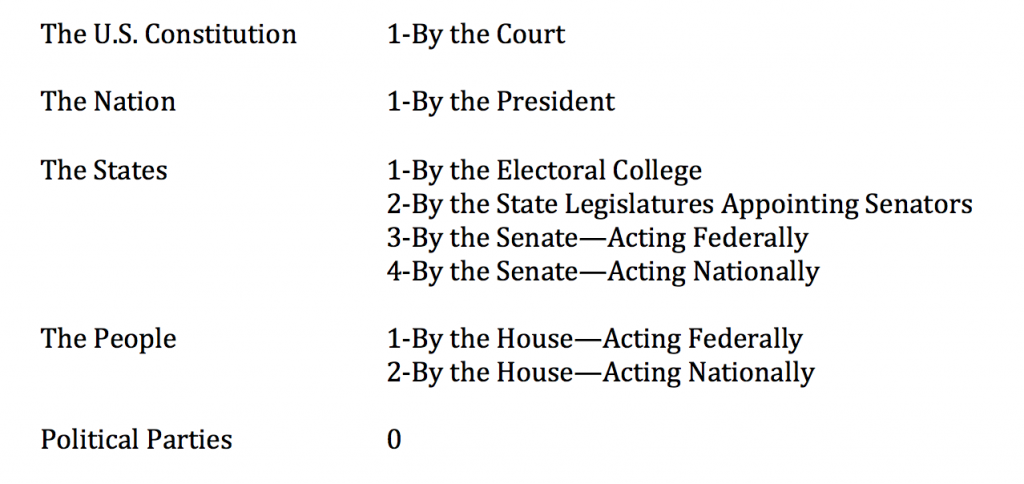
This entire arrangement was carefully thought out by the framers. They knew that the key to lasting freedom was to ensure that the States didn’t lose their power to the federal/national government, so they put in four protections against this (listed above). All were wiped out by the poor decision to adopt the 17th Amendment in 1913. (Ironically, this was ratified during an era of populism.)
Our oversized and overblown national government and corresponding loss of freedoms since that time are the natural result. The best solution would be to repeal the 17th Amendment and restore the proper balance of State and Federal powers.
The following chart shows how the government currently operates. Note that it is very different than the original constitutional arrangement:
THE STRUCTURE TODAY
(Items underlined are changes from the original Constitution
that are destructive to freedom.)
Look at how this has changed our governmental structure of representation:
Did you notice in all this that at the time of the American founding the primary entities of federal/national government were the House and the Senate, while the Court and Presidency were secondary? Compare that to now: the Presidency and Court act like primary branches of government, while the House and Senate act like secondary levels of government.
What the founders called “legislative primacy,” meaning that the people’s elected representatives in Congress had the final say on things through the purse strings, has been replaced by appointed officials in the Court and a huge Executive bureaucracy exerting the final say on most things.
Huge changes. All bad!
For The People
Now, if you’ve followed this article this far, congratulations! Here is the main point, the thesis, the reason for reading this and thinking about it:
Populism is attempting to correct the course of the American ship. Specifically, the populist elections of 2010 and 2014 both attempted to put the House and Senate back on track representing the people—not the political parties.
And the populist uprising of 2016 (among both Democrats and Republicans) is also arguing for the presidency to represent the people again, not the political parties. It’s not as good or as effective as repealing the 17th Amendment—not by a long shot—but at least the electorate is trying.
The voters (some knowingly, and most of them just by following their gut) are attempting to swing things back in the direction of government “by, of, and for” the people—instead of government “by, for, and of” the economic and power elites and their political party establishments.
Populism probably can’t get the ship all the way safely into port, but right now the people are at least trying to get things going in the right direction. If the voters keep at it, and don’t give up—and if they keep winning major elections—this new beginning can eventually be turned in the direction of a real and lasting solution.
Stay tuned…
Category : Aristocracy &Citizenship &Community &Constitution &Culture &Current Events &Economics &Education &Entrepreneurship &Featured &Foreign Affairs &Generations &Government &History &Independents &Information Age &Leadership &Liberty &Politics &Statesmanship

